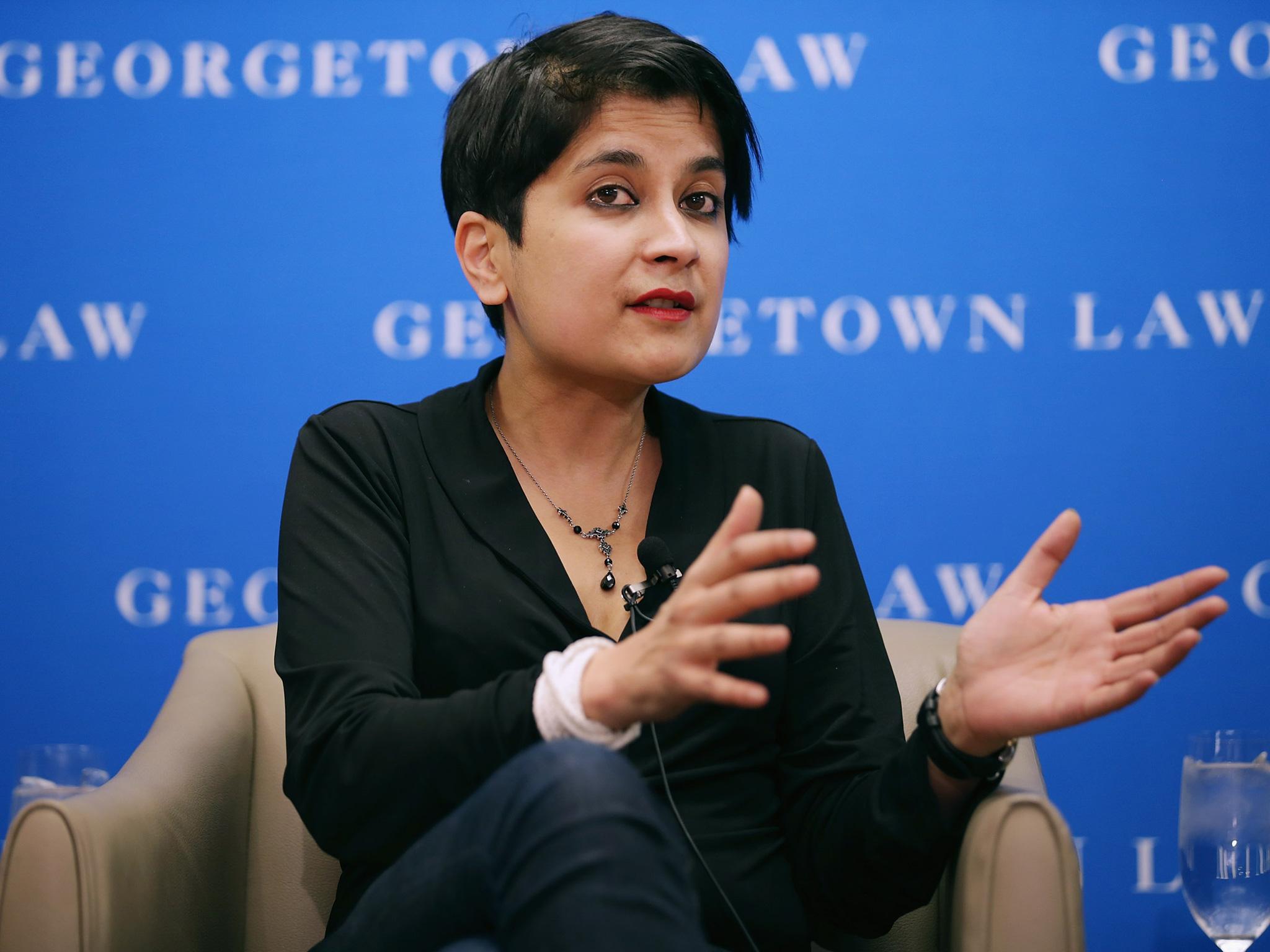Shami Chakrabarti and Jeremy Corbyn were the loudest critics of the Snooper’s Charter – but now theyre in power, they’ve gone quiet
Theresa May’s first attempt to spy on us began in 2012. Four years on, it looks as though she has finally ground Parliament into submission. No wonder voters are so cynical

If you’re concerned there will be no opposition to Brexit, or that the Tories will abandon the Human Rights Act, or we face a militarised police by stealth, then frankly you should be very worried indeed. Britain is now a one party state and the people you expected to stand up for our fundamental liberties are absent on duty.
In the coming fortnight, the illiberal Investigatory Powers Bill will pass through Parliament, making it easier for the British Government to spy on citizens entirely innocent of any crime.
The bill will allow the Government to hand UK tech firms top-secret notices to hack their customers; the police will be able to look at your internet browsing history, and your personal data will be tied together so the state can find out if you’ve attended a protest, who your friends are, and where you live. The most authoritarian piece of spying legislation any democratic government has ever proposed has sped through Parliament with only a whimper of opposition.
What makes this all the more incredible is that some of the most prominent and respected voices for liberty will abstain from voting this draconian legislation down. The Investigatory Powers Bill, a Snooper’s Charter, is the canary in the coal mine for our diseased democracy.

Shami Chakrabarti spent 13 years as Britain’s most prominent human rights defender. Just six months ago, she told the media that the Government “must return to the drawing board” with its illiberal Investigatory Powers Bill, because to do anything else would show “dangerous contempt for parliament, democracy and our country’s security”.
Jeremy Corbyn, in his column for the Morning Star, denounced the extension of state surveillance rushed through parliament two years ago, describing it as a “travesty of parliamentary democracy” and praising Liberty (then run by Shami Chakrabarti) for lobbying MPs to oppose it. Diane Abbott agreed, writing in June this year that this “Snoopers’ Charter will target minorities – and do nothing to make us safer”.
Abbott added: “My own privacy has been violated because of the political whims of unknown state officials, when they decided to monitor my emails, calls, texts, browsing history for years.”
Jeremy Corbyn was also put under surveillance, as was his fellow Labour politician Baroness Doreen Lawrence, who was spied on by the Metropolitan Police as she grieved for her son who had lost his life in a racist attack.
Shami Chakrabarti is now the shadow Attorney General, the law officer for Her Majesty’s Opposition. The two politicians who had been spied on, Jeremy Corbyn and Diane Abbott, are now the Leader of Her Majesty’s Opposition and shadow Home Secretary, respectively.
You would think that given three of the most high-profile figures to oppose state snooping were now at the very top of the Labour Party, the opposition would be tearing the Government apart.
Not quite. Instead, it was announced yesterday that Labour would neither be tabling major amendments to the legislation in the House of Lords to make it fit for purpose, but – worse – nor would the party be voting against the new powers contained in the bill.
Chakrabarti is Labour’s law officer. Just months ago, the human rights group she ran argued that the “proposed new law breaches our human rights”. If this is the case, how on earth can she stay quiet while Labour abstains?
Theresa May is about to get away with the largest expansion of state surveillance powers in peacetime, and no one can quite explain why Labour politicians who have been spied upon still sit on the fence.
Across the Western world, faith in politicians from across the political spectrum is ebbing away. Instead, populists such as Donald Trump tell us the elites are lying and that politicians say one thing and do another. Yet when politicians who do genuinely oppose intrusive surveillance powers stay quiet in the face of draconian legislation, it feeds conspiracy theories that democracy is a fix.
If social democrats are too frightened to stand up for what they believe in, then why bother voting for them? Jeremy Corbyn was re-elected by Labour members who wanted to see the party change direction. It’s hard to see how giving the Tories a free pass to give the state unjustified powers is part of that mandate.

Labour has just weeks to get this legislation right. Chakrabarti, Corbyn and Abbott can with no good reason abstain – they must work with the Liberal Democrats, the SNP and independent members of the House of Lords to make amendments to remove some of the worst elements of this bill; from police access to our web browsing history through to the request filter (which is like a powerful search engine, except it can trawl through the data of innocent citizens). If they fail, it will embolden the Mayist Tories to continue their permanent revolution against liberty and liberals.
Theresa May’s first attempt at the Snooper’s Charter began in 2012. Four years on, it looks as though she has finally ground parliament into submission. If she wins this battle unopposed, you wonder which other freedoms we shall lose.
Mike Harris is the founder and director of 89up and the former head of advocacy at Index on Censorship
Join our commenting forum
Join thought-provoking conversations, follow other Independent readers and see their replies
Comments
Bookmark popover
Removed from bookmarks